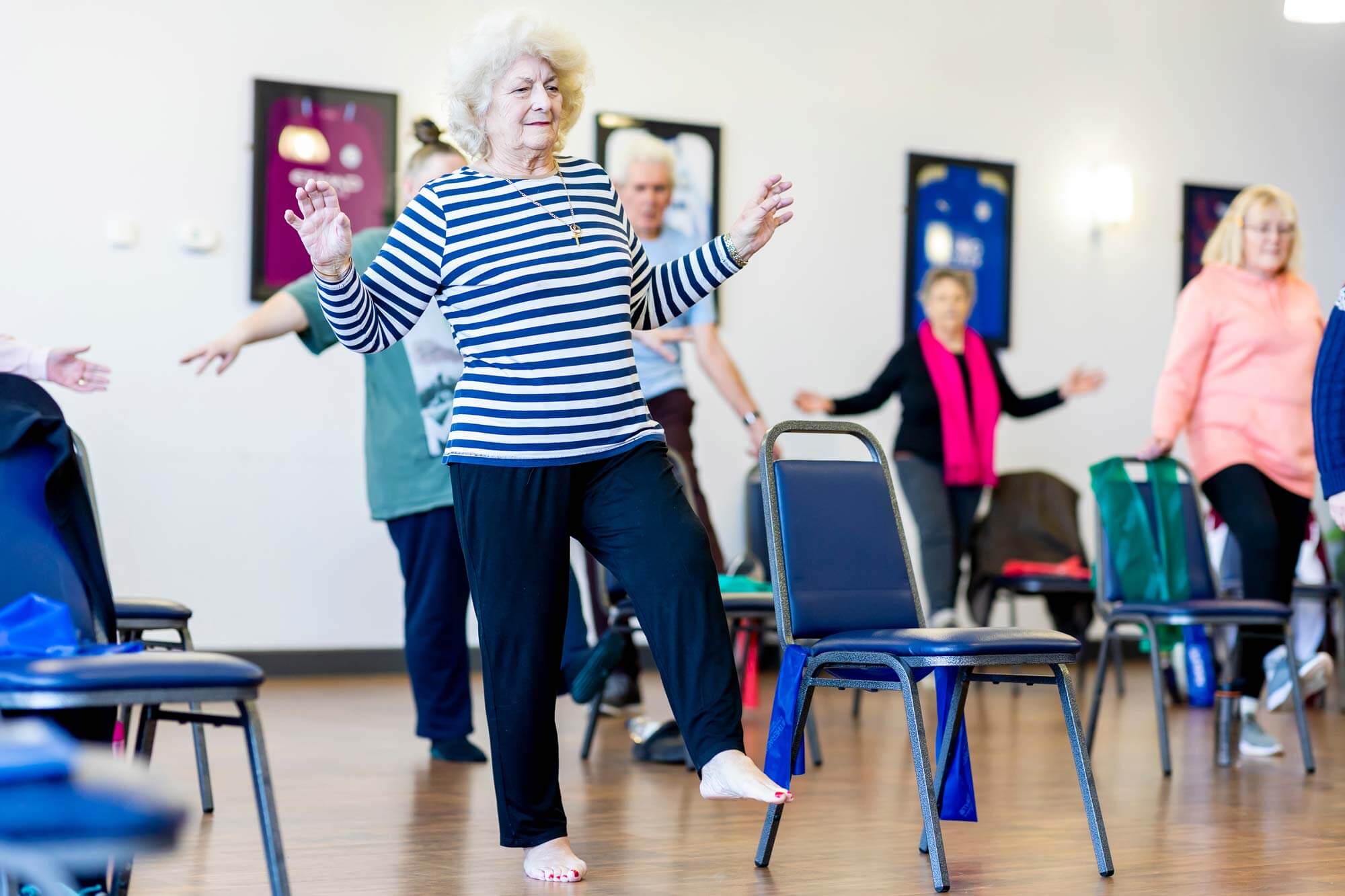While falls can affect anyone, they present a particularly serious concern for older adults. As we age, consequences of falls can be more severe, often resulting in fractures, hospitalizations, and diminished quality of life. Yet, fear of falling can actually increase our risk. In honor of Falls Prevention Awareness week (September 18-22), let’s explore some strategies to reduce fall risk and gain confidence in our steadiness.
This journey towards fall prevention is not solitary; it involves collaboration with healthcare providers, family members, and support networks.
-
Maintain Physical Activity: Engaging in regular exercise holds the key to fortifying your body’s resilience. Strengthening muscles and enhancing balance through activities like walking, tai chi, or supervised workouts can significantly reduce the likelihood of falling.
-
Illuminate Your Space: Adequate lighting is more than convenience; it is a means of hazard prevention. Illuminate all living spaces, corridors, and staircases sufficiently to eliminate shadows that might obscure obstacles.
-
Manage Cables and Cords: The perils of cluttered cords are often underestimated. Routinely inspect your living area and secure cords to prevent tripping hazards. Cord concealers and cable management solutions can be invaluable tools.
-
Choose Appropriate Footwear: Your choice of footwear is pivotal. Opt for well-fitted shoes with non-slip soles that provide ample support. High heels and ill-fitting shoes can compromise stability and amplify the risk of falling.
-
Monitor Medications: Consult your healthcare provider regarding the side effects of your medications. Certain prescriptions can induce dizziness or imbalance. Being aware of these effects allows for informed decision-making and precautionary measures.
-
Modify Your Home Environment: Evaluate your living space critically. Remove loose rugs, declutter walkways, and arrange furniture to facilitate unobstructed movement. Necessary modifications, like installing grab bars and handrails in bathrooms and stairwells, can provide essential support.
-
Prioritize Vision Health: Regular eye examinations are imperative. Diminished vision can lead to misjudgment of distances and obstacles. Clear sight is an essential component of fall prevention.
-
Acknowledge Personal Limitations: Self-awareness is a valuable trait. Recognize your physical limitations and avoid overexertion. Utilize assistive devices, such as canes or walkers, if recommended by your healthcare professional.
This journey towards fall prevention is not solitary; it involves collaboration with healthcare providers, family members, and support networks. Communicate openly about your concerns and progress, and do not hesitate to seek assistance when needed.
To manage concerns about falls, consider enrolling in a fall prevention program, such as A Matter of Balance, offered frequently by LifePath at local senior centers and other locations. LifePath also offers customized support for mobility concerns; our Resource Consultants can talk you through the options. Call 413-773-5555 or email info@LifePathMA.org to find out more.
Remember, the goal is to exercise caution and mindfulness while building confidence in our steadiness. Embracing these strategies empowers us to navigate our daily lives confidently and securely.






